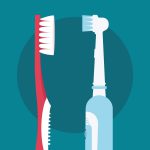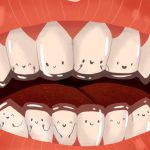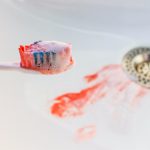
The Importance of Regular Dental Checkups and Cleanings
April 10, 2025 9:00 amIn this post, learn why regular dental checkups matter—even when nothing hurts—and how preventive care keeps your smile healthy.

In this post, learn why regular dental checkups matter—even when nothing hurts—and how preventive care keeps your smile healthy.

Check out our blog post to help you decide whether your oral health would benefit from an electric toothbrush!

After orthodontic treatment, wearing your retainers will prevent your teeth from shifting back. In our blog post, we share tips for keeping your retainers clean.

In our blog post, discover answers to questions that dental hygienists are frequently asked during cleanings.

Check out our blog post to learn about periodontal disease. We discuss what causes gum disease and how to prevent it.

Vero Dental is your kid-friendly dentist in Denver, CO. Check out our blog post for 5 simple ideas to make oral hygiene more enjoyable for your children.

Check out our blog for tips to keep your teeth & gums healthy. If you have a dental emergency or issue, contact our Denver dental office today!